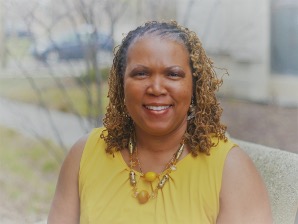
Teaching While Grieving
There is a setting on Zoom which allows participants to blur their background. The individual is fully aware of the personal home, office, car, or other location. However, viewers on the Zoom line, if you will, have to guess or surmise the place behind the face. I know where I am. You are left to nebulously wonder.
As professors we show up in the classroom, whether on campus or online, fully aware of how we are feeling. There are joys that call for jubilation and heartaches which weigh heavily. We know. We try to prevent our students from knowing. For the sake of pedagogical performance, we attempt to hide those morose monuments. In our teaching we make valiant strides to blur the burdens beckoning us back to bed. So that the language of hermeneutics, theology, religious studies, sociology, ethics, and pastoral care and counseling carry the day, we mute our emotions. There is a tendency to show up poised and put together when in reality we are a puddle of tears. We dare not permit a clear screen of pain and anguish. Thus, through an obscure framing we don a mask of dis-ease and discomfort.
Since the onset of what is now the endemic presence of COVID-19, teaching has had to muddle through communal conundrum and global grief. I dare not aver that there was not such widespread distress before the pandemic: #BlackLivesMatter, #MeToo, the Civil Rights Movement, the Cold War, the Rwanda Crises, the HIV/AIDs epidemic, earthquakes in Haiti, and the Spanish Flu, to name a few, were all large scale crises that did not escape classroom discussions. These watershed moments continue to shape course content. Ours is an ancestry of crisis pedagogy with the purpose of trying to create progeny change agents. We cut our teeth on teaching while grieving.
Recent events continue to prove fodder for our goals to mold social activists, social catalysts, justice leaders, pastors, counselors, and professors. Another mass shooting in the United States, a war in Ukraine, deadly earthquake decimation and demise in Turkey and Syria, and more deaths from COVID-19 appear antithetical to what we are trying to accomplish in the classroom. Ours is the task of nurturing persons who will love mercy, do justice, and walk humbly when it seems that yes, the world is going to hell in a handbasket. And yet, we continue to teach. #WePersist.
A macrocosmic lens gives broad strokes. These we cannot blur, per se. However, the microcosmic, personal matters we want to keep at arm’s length. Ours is not the tendency to announce to our students news of a tenure and promotion denial or an article rejection. We swallow the agony of being an empty nester longing for our children as advisees demand the care we’ve reserved for our loved ones. Professors and administrators have struggled to be there for students when members of their own families died, lost jobs, and became ill due to COVID-19. This is the blurring.
So what do we do? This was not meant to be a doom and gloom, woe-is-me writing exercise. I would like to encourage us, encourage me, to be more transparent. Imagine showing up in the classroom and honestly telling your students, “I am not okay today.” A statement of “I am struggling” from a professor could free classroom colleagues to relax, relate, and release. I am not saying everything needs to be shared, nor all the time. I also realize the potential maternal repercussions if I, a Black, cisgender, female professor, dare to be vulnerable. However, instead of blurring the background, how about allowing our emotional and tender forefronts to boldly manifest. In freeing ourselves, our classrooms can become a means to liberate our students.
Our teaching task is to model the humanity of the profession. We do ourselves and our students a disservice when we obfuscate our dejection and obscure our despondency. I would posit that our mental health and wellness depend on our willingness to safely, openly unloose our stammering tongue. Teaching while grieving can make for fertile pedagogical ground. We grieve because we love. We grieve because we have lost what we love. May we honor the teaching, what we learn from grieving.
Stephanie,
I appreciate your honest reflection and support it wholeheartedly. I applaud your courage as a Black woman to be vulnerable in the classroom.
I am aware that my own writing and teaching on the intersections between the Bible and Pastoral Care has been fueled by the accidental death of my brother when he was 23 and I was 27.
Thank you for your leadership.